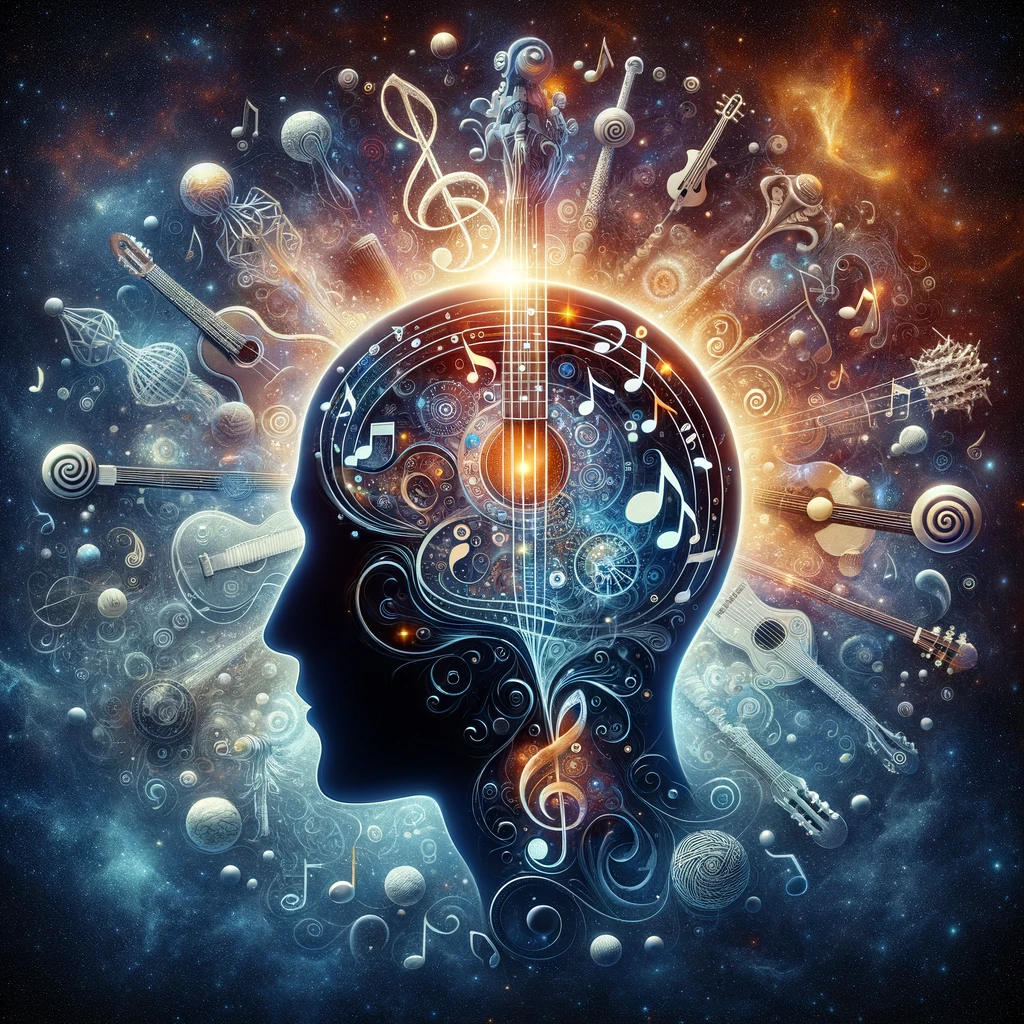Introduction
Music, an art form that transcends languages and cultures, holds the power to evoke deep emotions and memories. But what lies beneath its surface? The science of music, a multidisciplinary field that intersects with neuroscience, psychology, and even physics, offers fascinating insights into how music affects us on a profound level.
The Physical Essence of Music: Sound Waves Meet Biology
Music begins as vibrations, traveling through the air as sound waves. These waves, when they reach our ears, stimulate the cochlea, sending electrical signals to the brain. This process, seemingly simple, sets the stage for complex reactions within the brain, illustrating the first step in music’s powerful journey from mere sound to an emotional catalyst.
The Brain on Music: A Symphony of Neurons
Neuroscientists have found that listening to music engages multiple areas of the brain simultaneously. The amygdala, involved in emotion processing, and the nucleus accumbens, a key player in the reward system, light up, explaining the chills or thrills we feel when listening to a favorite piece. Music’s ability to activate the brain’s pleasure centers is akin to the effects of food or even love, highlighting its universal appeal and deep-seated impact.
The Emotional Alchemy of Music
Music’s power to evoke emotions ranges from the joy of a lively dance tune to the cathartic tears brought on by a somber melody. This emotional alchemy is not just anecdotal; studies have shown that music can significantly affect mood, reduce stress, and even alleviate symptoms of depression. The precise mechanisms behind these effects involve music’s capacity to induce dopamine release, a neurotransmitter associated with pleasure and reward.
Music Therapy: Healing Through Harmonies
Leveraging music’s emotional impact, music therapy has emerged as a powerful tool in treating various psychological and physical ailments. From aiding in stroke recovery to soothing anxiety, music therapy’s applications are wide-ranging, underscoring the therapeutic potential of melodies and rhythms.
Music, Memory, and Identity
Beyond its emotional impact, music plays a key role in memory formation and recall. The nostalgic power of music can transport us back in time, triggering vivid memories of specific moments or periods in our lives. This connection between music and memory is particularly poignant in the context of Alzheimer’s and dementia, where familiar tunes can awaken parts of the brain otherwise unreachable, offering a bridge to lost memories and a sense of identity.
Conclusion
The science of music reveals its profound impact on the human experience, from the neurological fireworks it sets off to its role in emotional health and memory. As we continue to unravel the mysteries of music’s effects on the mind and body, it becomes clear that music is more than just entertainment—it’s a fundamental part of what makes us human, a universal language that speaks to the depths of our souls.
